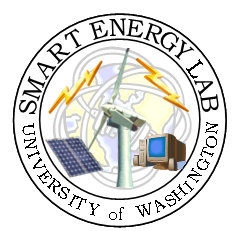Power System Analysis
This course covers the essentials of power system planning and
operation. Analytical techniques, modeling and computer simulations are
presented for a number of important power system topics that are
encounters by power engineers in utilities and large industrial
installations.
Target Audience
Electric utility employees who need greater understanding of system
operation.
System operators who want greater understanding of the technology.
Public agency and regulatory staff with responsibility for electric
power issues.
Engineers without in-depth background in power systems
Power system managers who don't have a power engineering background.
Course Topics:
Introduction and Basic Concepts
Power plants
Transmission lines
Distribution systems
Transformers
Switch gear and Protection
Real and Reactive powers
Three-phase systems
Transmission Line and Cable Parameters
Resistance
Inductive reactance
Capacitive reactance
Bundled Conductors
Transmission line and Cable models
Short Transmission Lines
Medium Length Lines
Long Lines
Power and Frequency Control
Turbine Governor
Power/Frequency model
Power flow control
Reactive Power and Voltage Control
Sources of reactive powers
Reactive power/voltage model
Reactive Power/Voltage control
Load Flow
Real and Reactive Power Flow
Load Flow Equations
Solutions of Load Flow Equations
Fault Analysis
Causes of Faults in Power Systems
Symmetrical three-phase faults
Unsymmetrical faults
Neutral impedance
Stability Analysis
Concept of stability
Steady State Stability Limits
Power system Kinetic Energies
Swing Equations
Equal Area Criterion
Transient Stability
Economic Operation
Unit Commitment
Optimum Dispatch
Optimum Power Flow

